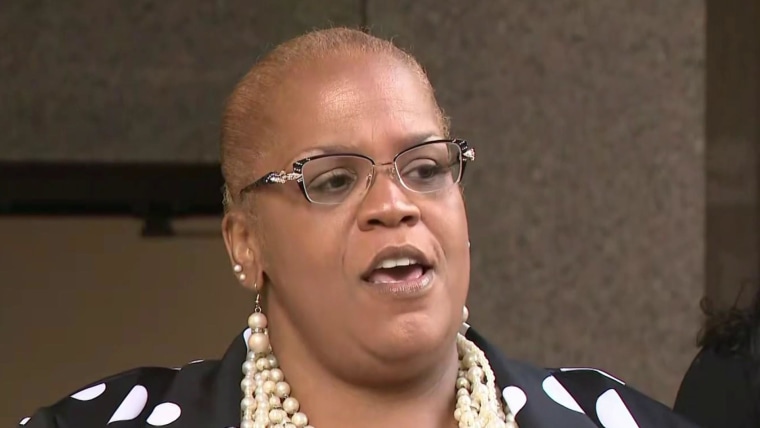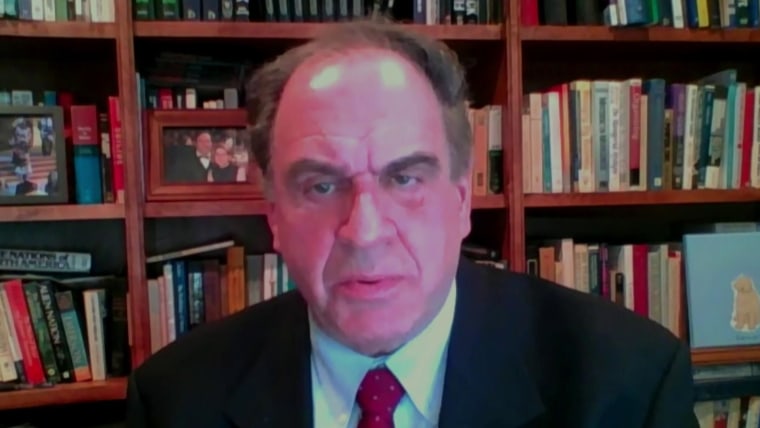Top private law firms plan ‘SWAT teams’ to fight voting restrictions in court
First, it was the businesses. Now, it’s the bar.
More than a dozen of the country’s top law firms have committed to join forces to challenge voting restrictions across the country, adding legal might to the corporate pressure campaign opposing Republican-led attempts to overhaul elections in the wake of former President Donald Trump’s loss.
One of the effort’s leaders, Brad Karp, chairman of the law firm Paul, Weiss, Rifkind, Wharton & Garrison of New York, said Monday that 16 firms had signed on so far, including his. The lawyers will act like “SWAT teams” for legal action, he said. Jeffrey Sonnenfeld, a Yale School of Management professor who is working to help mobilize corporate America against the restrictions, described the legal coalition as an “army of election law experts ready to dispatch at a moment’s notice.”
The group came together from conversations among major law firms about publicly taking a stand against restrictive voting laws like the one enacted in Georgia last month, as well as bills under consideration in Texas, Arizona, Florida and other states.
“I believe it is critically important for the private bar, first, to send a powerful, unified message to government officials that it is unacceptable to make voting harder, not easier, for all eligible voters,” Karp said. “Supporting the right of all eligible voters to cast ballots for candidates of their choosing is central to our democracy and should be embraced by all Americans, regardless of their political affiliation.”
Sixty-five law firms, meanwhile, signed on to a statement first reported Monday that urges elected officials to prioritize voting access. The list of signatories includes leaders from Perkins Coie of Seattle, as well as Davis Polk & Wardwell; Cleary Gottlieb Steen & Hamilton; and Paul, Weiss, all headquartered in New York, according to The American Lawyer, a legal publication.
“Making voting easier, not harder, for all eligible voters should be the goal of every elected official. Election laws that impose unnecessary obstacles and barriers on the right to vote and that disenfranchise underrepresented groups represent a significant step backwards for all Americans,” the statement said.
Of the 65 firms, Karp said, 16 committed to mobilize manpower.
The legal effort, which he said he expects to expand, would see thousands of lawyers partner with the advocates and lawyers who typically challenge election laws in the states. Karp said the group is planning a multiyear effort, with presences in as many states as needed.
Republicans, including Georgia Gov. Brian Kemp, have argued that major changes are needed to restore trust in elections after Trump spent months pushing the lie that one was stolen from him. More than 350 restrictive voting bills are under consideration in 47 states, according to the Brennan Center for Justice at New York University Law School. By all official accounts, the 2020 election was secure and the results were accurate. Trump’s attorney general, William Barr, said there was no evidence of widespread voter fraud, and Trump’s legal efforts to overturn the results failed in courtrooms around the country.
Corporations began speaking out against the Republican-led efforts late last month, after Kemp signed a sweeping overhaul into law in Georgia, which President Joe Biden flipped blue for the first time in decades. Major Georgia-based companies, like Delta and Coca-Cola, sharply criticized the law; Delta’s CEO denounced it as being “based on a lie” after months of prodding by activists in the state.
A letter from Black business leaders — published in a full-page ad in The New York Times and signed by more than 70 Black business executives — helped spur more than 200 corporate leaders to speak out and, in some cases, act, advocates said. Major League Baseball announced that it was moving its All-Star Game out of Atlanta in protest.
Other corporate giants singled out restrictive proposals in Texas’ Republican-controlled Legislature for particular condemnation, while Georgia lost its first film production over the law Monday.
Republicans have pushed back.
Senate Minority Leader Mitch McConnell, R-Ky., warned corporate America to “stay out of politics” before he softened his stance the next day, saying: “I didn’t say that very artfully yesterday. They’re certainly entitled to be involved in politics. They are. My principal complaint is they didn’t read the darn bill,” referring to Georgia’s recently enacted law.
Texas Lt. Gov. Dan Patrick, a Republican, said that the corporate response was “nonsense” and that American Airlines’ CEO should “go away” after the airline denounced a GOP-sponsored bill in Texas, where it is headquartered.
More than 120 chief executives and senior leaders, lawyers and experts joined a Zoom call Saturday to plot their next moves, NBC News reported. The private-sector leaders discussed issuing more public statements, pulling investments from states that pass restrictions and getting involved in voting rights-related legal action.
At least four lawsuits have already been filed by voting rights and civil rights groups to challenge Georgia’s changes in voting law.







